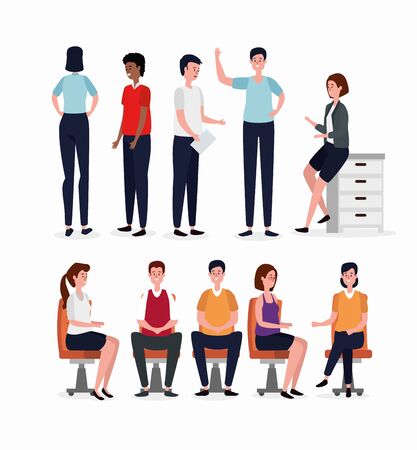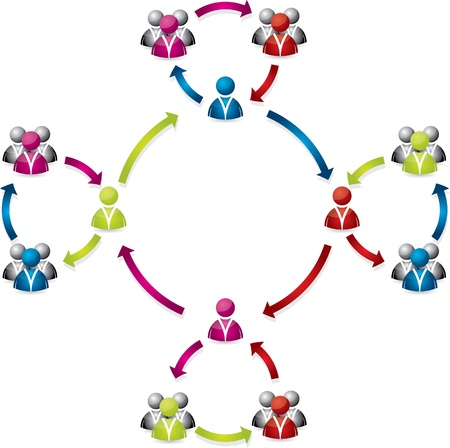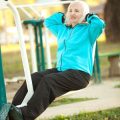Introduction to Community Integration after Spinal Cord Injury
For individuals living with spinal cord injuries (SCI) in the UK, community integration represents far more than simply returning home after hospital care. It is a deeply personal and essential journey that involves reconnecting with society, regaining independence, and establishing a sense of belonging within local communities. In the British context, community integration means not only physical access to spaces and services but also fostering meaningful social participation, employment opportunities, and emotional wellbeing. This holistic approach supports people as they rebuild their lives, ensuring they are not defined solely by their injury but are empowered to thrive as valued members of society. Recognising the importance of this process, numerous British programmes have been developed to provide tailored support for individuals with SCI—ranging from peer mentoring and vocational training to accessible sports and arts initiatives. As we explore these efforts and the stories of those who have succeeded in their integration journeys, it becomes clear that true recovery extends beyond medical rehabilitation; it is about nurturing hope, dignity, and connection at every stage.
2. Key British Programmes Supporting Community Reintegration
In the United Kingdom, several dedicated programmes and services provide practical support for people living with spinal cord injuries (SCI) as they reintegrate into their communities. These initiatives are designed to empower individuals, improve independence, and foster inclusion at every stage of recovery. Below is an outline of some of the most prominent UK-based organisations and the key supports they offer.
NHS Spinal Cord Injury Centres
The National Health Service (NHS) operates a network of specialist Spinal Cord Injury Centres across the country. These centres provide holistic rehabilitation, medical care, and community re-entry planning for newly injured individuals. With multidisciplinary teams including physiotherapists, occupational therapists, social workers, and psychologists, the centres ensure each person receives tailored support from acute care through to discharge and beyond.
Key Services Offered by NHS SCI Centres
| Service | Description |
|---|---|
| Rehabilitation Programmes | Personalised physical and occupational therapy to maximise function and independence. |
| Peer Support Schemes | Opportunities to connect with others living with SCI for emotional support and practical advice. |
| Community Transition Planning | Preparation for returning home, including home adaptations and liaison with local services. |
| Ongoing Outpatient Support | Follow-up clinics and advice post-discharge to address any evolving needs. |
The Back Up Trust
The Back Up Trust is a leading UK charity that specialises in helping people rebuild their confidence and independence after a spinal cord injury. Their services include wheelchair skills training, mentoring from peers who have experienced SCI themselves, and accessible adventure courses that promote self-esteem and community engagement. Back Up also offers vocational support, guiding individuals back into education or employment when ready.
Spinal Injuries Association (SIA)
The Spinal Injuries Association provides comprehensive advocacy and information services for people affected by SCI across the UK. Through their free helpline, regional peer support officers, legal advice clinics, and educational resources, SIA ensures that everyone can access reliable guidance on housing, benefits, care packages, mental health, and more. Their advocacy work also helps shape national policy to better serve the SCI community.
Summary Table: Prominent UK Programmes Supporting Community Integration after SCI
| Organisation/Service | Main Supports Offered | Target Audience |
|---|---|---|
| NHS SCI Centres | Specialist medical rehab, peer support, community transition planning | Newly injured individuals & families |
| The Back Up Trust | Wheelchair skills training, mentoring, adventure courses, employment support | People living with SCI at any stage post-injury |
| Spinal Injuries Association (SIA) | Helpline, peer support officers, legal/benefits advice, advocacy & education resources | People with SCI, carers & loved ones |
Together, these British programmes create a robust safety net for people adjusting to life after a spinal cord injury—offering not only essential medical care but also emotional encouragement and practical strategies for active participation in community life.

3. Peer Support and Local Networks
Peer support and local networks play a transformative role in the lives of people with spinal cord injuries (SCI) across Britain. After a life-changing event such as an SCI, feelings of isolation and uncertainty can be overwhelming. This is where peer mentoring, befriending schemes, and community groups step in to offer practical advice, emotional reassurance, and a sense of belonging that is both comforting and empowering.
Many British organisations recognise the value of lived experience and have established peer mentoring programmes. These initiatives connect newly injured individuals with those who have navigated similar journeys, offering insight into daily challenges and successes. Peer mentors provide guidance on everything from accessible transport options to managing personal relationships post-injury, all within the familiar context of British culture and services.
Befriending schemes are another cornerstone of community integration. Run by both national charities like Spinal Injuries Association and local volunteer groups, these schemes pair people with volunteers for regular chats, outings to local parks or cafes, or shared participation in hobbies. Such companionship not only reduces loneliness but also helps rebuild confidence and social skills in a supportive environment.
Community groups—whether focused on adaptive sports, creative arts, or advocacy—foster inclusion by bringing together individuals with shared experiences. Across Britain, local councils often collaborate with charities to host accessible events and workshops that celebrate ability and nurture friendships. In rural areas especially, digital platforms now bridge geographical gaps, allowing people to connect through online forums or virtual coffee mornings.
The collective impact of peer support networks is evident in countless success stories throughout the UK. Individuals often speak of how these connections reignited their optimism and provided practical know-how for navigating both physical barriers and societal attitudes. By sharing stories, resources, and encouragement, these networks nurture resilience and ensure that nobody faces the journey alone.
Accessible Housing and Transport Solutions
One of the key elements in successful community integration after a spinal cord injury is having access to suitable housing and reliable transport. Across the UK, both national and local initiatives have worked to create environments that foster independence, dignity, and participation for people living with spinal cord injuries. This section explores adapted housing projects, improvements in public transport accessibility, and the valuable resources provided by local councils to support independent living.
Adapted Housing Projects
Finding a home that meets individual needs is essential for people adjusting to life after a spinal cord injury. Many British organisations, such as Habinteg Housing Association and Aspire, work closely with local authorities to offer wheelchair-accessible homes throughout the country. These properties are designed or modified with features like step-free entrances, widened doorways, wet rooms, and adjustable kitchen units. The Disabled Facilities Grant (DFG), available through most local councils, helps fund necessary adaptations so that individuals can remain in their own homes safely and comfortably.
| Feature | Description |
|---|---|
| Step-free Access | No stairs at entry points; smooth pathways for wheelchairs |
| Wet Rooms | Level-access showers with grab rails and non-slip flooring |
| Widened Doorways | Allows easy passage for mobility aids throughout the home |
| Adjustable Kitchens | Worktops and cupboards at accessible heights for seated users |
| Emergency Alarms | Panic buttons or call systems linked to carers or emergency services |
Public Transport Accessibility Improvements
The UK has made significant strides towards ensuring public transport is accessible for all. Buses in major cities like London are low-floor and fitted with ramps; trains increasingly offer step-free boarding, priority seating, and assistance from staff when needed. The “Turn Up and Go” service on National Rail allows passengers with disabilities to receive on-the-spot support without booking ahead. Additionally, taxi schemes such as London’s Taxicard offer subsidised rides for those unable to use conventional public transport.
Key Transport Accessibility Features:
- Ramped access on buses and trains across most regions
- Audio-visual information systems for easier navigation
- Personal travel assistance schemes funded by local authorities
- Accessible taxis with space for wheelchairs and mobility aids
- Blue Badge parking scheme for easier vehicle access near destinations
Council Resources Supporting Independent Living
Your local council is often the first point of contact when seeking support after a spinal cord injury. Most councils provide dedicated occupational therapists who can advise on home adaptations, funding options, and personal care plans. Social care teams coordinate Personal Independence Payments (PIP) assessments and connect individuals with community resources such as peer support groups or befriending services. Many areas also offer Independent Living Centres where you can try out equipment before making decisions about adaptations.
Example: Local Council Support Table
| Council Service | Description |
|---|---|
| Occupational Therapy Assessment | Home visits to assess needs and recommend adaptations |
| Disabled Facilities Grant (DFG) | Financial aid for essential home modifications |
| PIP Application Assistance | Guidance through benefit claims process |
| Befriending Schemes | Volunteer-led social support to combat isolation |
| Equipment Loan Service | Lending of wheelchairs, ramps, hoists, etc., for trial or short-term use |
Together, these housing and transport solutions empower people recovering from spinal cord injuries to live independently within their communities, helping them rebuild confidence and maintain meaningful social connections.
5. Employment, Education, and Social Participation
For individuals living with a spinal cord injury in the UK, reintegration into the workforce, educational settings, and social circles can be both challenging and transformative. British programmes have been thoughtfully designed to support these transitions, ensuring that people are not only able to access meaningful opportunities but also feel valued within their communities.
Access to Work: Tailored Vocational Support
The Access to Work scheme, provided by the Department for Work and Pensions (DWP), is a cornerstone of employment support. This initiative offers practical and financial assistance for workplace adaptations, specialist equipment, and even personal support workers. Through close collaboration with employers, individuals with spinal cord injuries are empowered to return to or begin work in environments that are safe and accessible. Many British success stories highlight how personalised guidance from vocational rehabilitation teams has enabled participants to rediscover their professional identities and contribute confidently to society.
Pursuing Further Education: Inclusive Learning Environments
British colleges and universities have made significant strides in creating inclusive learning environments. Disability support services offer bespoke academic adjustments, such as adapted coursework, assistive technology, and accessible campus facilities. The Disabled Students’ Allowance (DSA) further eases financial pressures related to studying with a disability. By fostering a culture of understanding and accessibility, these institutions help students with spinal cord injuries continue their educational journeys, achieve qualifications, and open doors to new possibilities.
Leisure Activities: Building Connections Beyond Rehabilitation
Re-engaging with leisure activities is vital for emotional well-being and social integration. Across Britain, local councils and charities organise accessible sports teams, art classes, gardening groups, and community events tailored for people living with disabilities. Initiatives like WheelPower and Sailability have inspired many to embrace adaptive sports such as wheelchair basketball or sailing. These opportunities foster friendships, boost confidence, and help individuals reconnect with passions that bring joy beyond day-to-day routines.
Holistic Support for Fulfilled Lives
The combined efforts of employment schemes, educational support services, and inclusive leisure activities reflect a uniquely British commitment to holistic rehabilitation. By removing barriers and championing individuality, these programmes help those affected by spinal cord injury regain independence and purpose—illustrating how thoughtful integration can transform lives within our communities.
6. Personal Stories of Success
Real-life stories bring hope and demonstrate the tangible impact of British community integration programmes for people living with spinal cord injuries. Across the UK, individuals have not only rebuilt their lives but also found new purpose and connection through these supportive networks.
Emma’s Journey: Rediscovering Independence in Manchester
After sustaining a spinal cord injury from a cycling accident, Emma initially faced overwhelming challenges. With support from her local NHS rehabilitation team and participation in peer-support groups run by Spinal Injuries Association, she gradually regained confidence. Emma credits adapted sports initiatives in Greater Manchester for helping her reconnect socially, saying, “Wheelchair rugby introduced me to friends who truly understand my journey.” Her story illustrates how tailored local resources empower individuals to reclaim independence.
David’s Story: Employment and Advocacy in London
David, injured during his military service, struggled with isolation after returning home to London. Through Back Up Trust’s vocational training workshops and mentoring schemes, he was able to secure meaningful employment. David now works as an accessibility consultant and volunteers to help others navigate life post-injury. “The sense of belonging I found through community projects made all the difference,” he reflects.
Sophie’s Experience: Community Gardening in Bristol
Sophie discovered a renewed sense of purpose after joining a community gardening project designed for people with disabilities. The inclusive nature of the programme allowed her to engage fully, build friendships, and improve her wellbeing. She notes, “Being outdoors and working alongside others gave me back my confidence.”
The Ripple Effect of Integration Efforts
These inspiring case studies highlight how British community integration strategies—whether through peer support, accessible employment opportunities, or inclusive recreational activities—foster resilience and belonging. Each person’s journey underscores the importance of continued investment in these vital programmes, ensuring everyone has the opportunity to thrive after spinal cord injury.
7. Challenges and Future Directions
Despite significant progress in the UK, individuals with spinal cord injuries (SCI) continue to face a range of barriers to full community integration. Accessibility remains a persistent challenge, particularly in rural areas where public transport, housing, and local facilities may not always meet the standards required for wheelchair users or those with limited mobility. Social attitudes can also present obstacles, with stigma and a lack of awareness sometimes leading to unintentional exclusion.
Addressing Ongoing Barriers
The British approach recognises that rehabilitation is not a one-off event but an ongoing process. Services are increasingly focusing on lifelong support, adapting as individuals’ needs change over time. Programmes such as peer mentoring, vocational retraining, and inclusive sporting activities aim to address not just physical barriers, but also social and psychological ones.
Adapting Services to Evolving Needs
As technology advances, the NHS and partner organisations are integrating new solutions like digital health platforms and smart home adaptations. These innovations allow people with SCI to participate more fully in society and control their own care. Additionally, there is a growing emphasis on co-production—ensuring that those living with SCI have a direct say in shaping the services they receive.
Looking Ahead: A Collaborative Effort
The future of community integration for people with SCI in the UK lies in continued collaboration between healthcare providers, local councils, charities, and service users themselves. Ongoing training for professionals ensures evolving best practice, while targeted funding supports both established programmes and pilot projects. By listening carefully to lived experience and committing to removing practical and attitudinal barriers, Britain is striving to create communities where everyone feels welcome, supported, and able to thrive.


